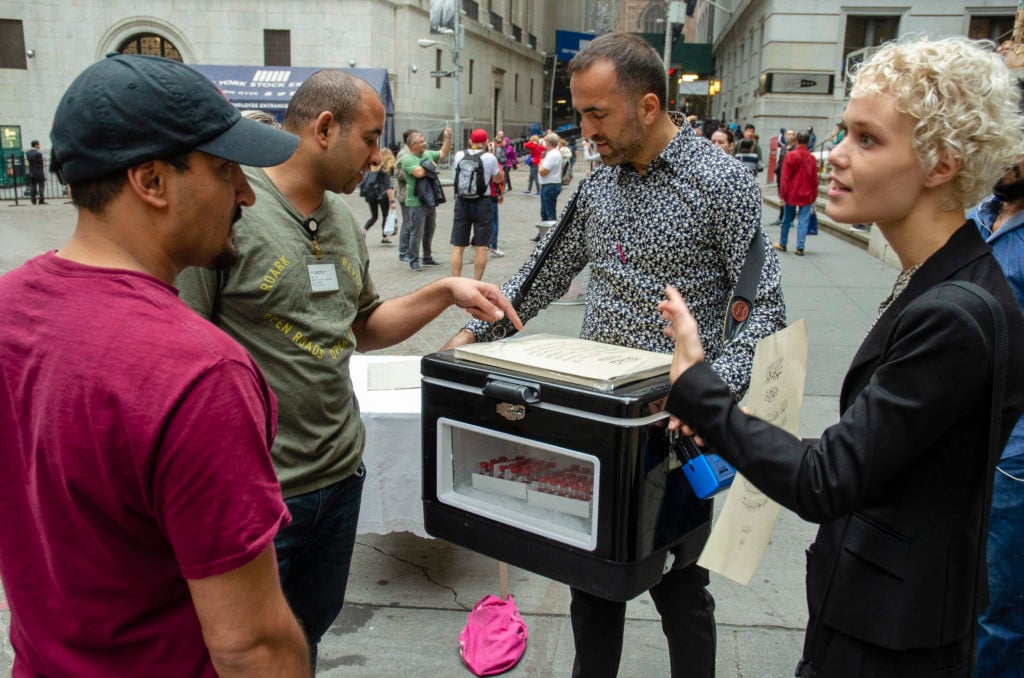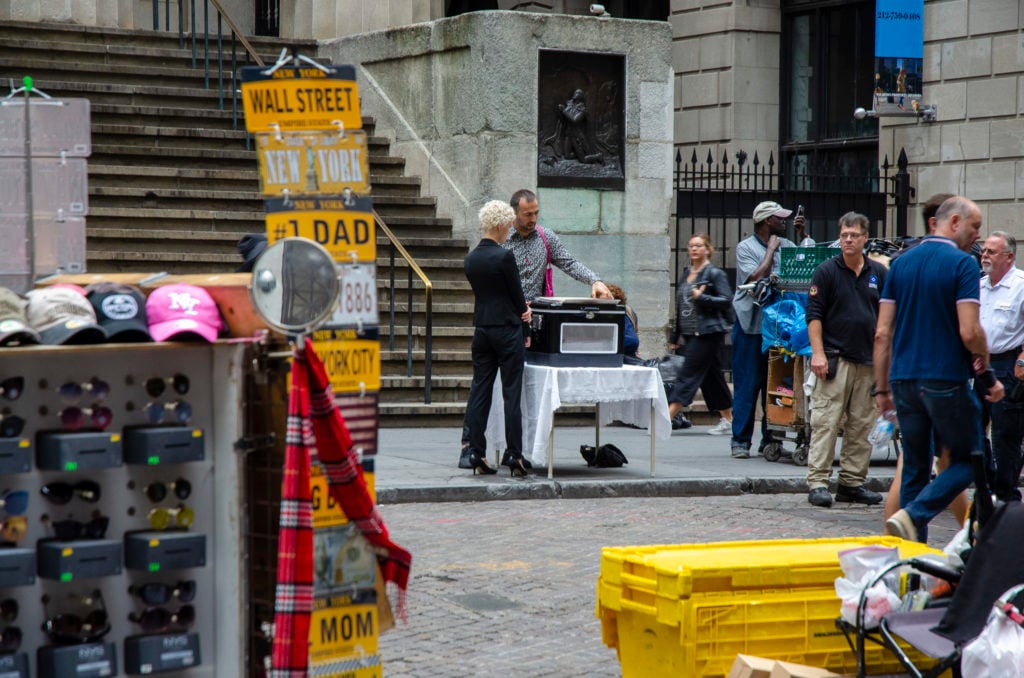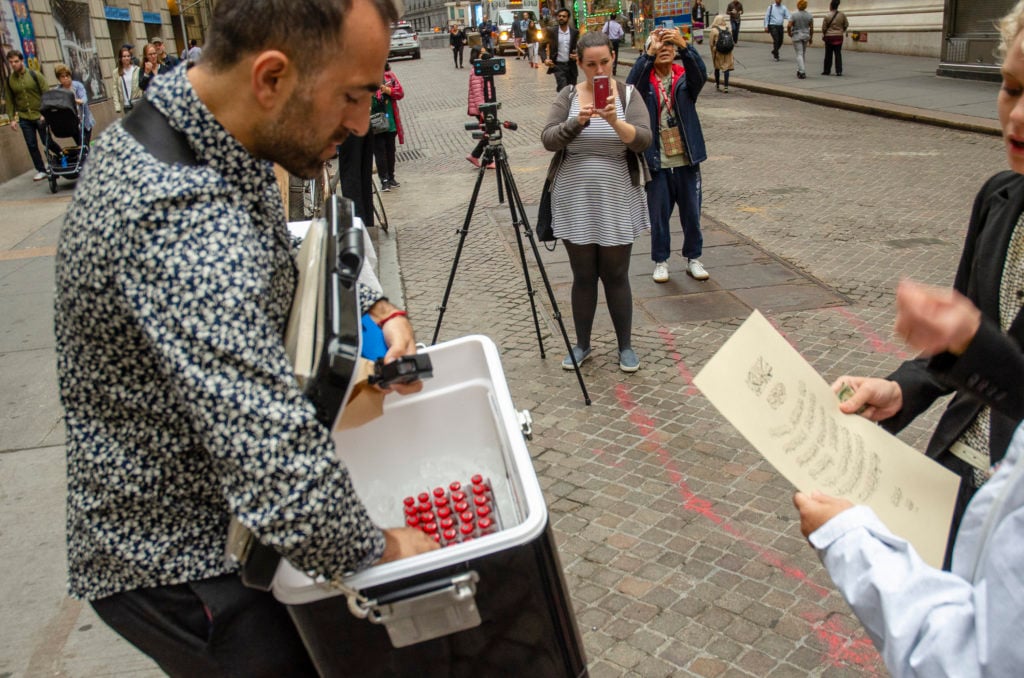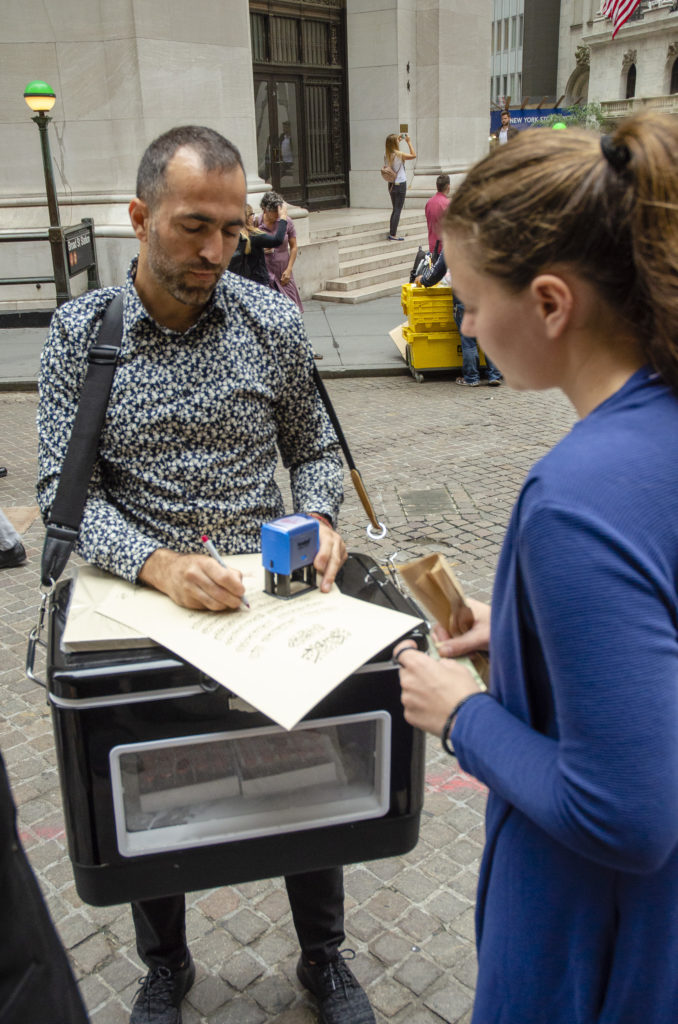On View
A Palestinian Performance Artist Is Selling His Own Blood on Wall Street
The performance piece is meant to bring attention to the violence promoted by America’s military industrial complex.

The performance piece is meant to bring attention to the violence promoted by America’s military industrial complex.

You can buy more than just stocks on Wall Street—a statue of liberty keychain, a charging bull bottle opener, a bag of candied nuts. Today, you can also purchase 500 milliliters of an artist’s blood.
From Monday to Friday this week, 9:30 PM through 4:00 PM, Khaled Jarrar is positioned on the corner of Wall Street and Broad Street in the Financial District, selling 50 10-milliliter vials of his own blood from a cooler around his neck. Aptly titled the Blood for Sale, the new performance piece from the Palestinian artist is meant to bring attention to the international violence and imperialism promoted by America’s military-industrial complex.
“When you have a military industry, you have a market,” Jarrar tells artnet News. “Companies compete, and when there is more violence in countries armed by the US, these companies benefit more. I don’t want to say that we all have blood on our hands, but we need to take action in protesting what’s happening.”

Khaled Jarrar, Blood for Sale (2018). Courtesy of Open Source Gallery. Photo: Stefan Hagen.
Earlier this year Jarrar staged a performance in the desert outside of Tucson in which he made abstract paintings by firing bullets at paint containers in front of a canvas. Titled I Am Good at Shooting, Bad At Painting, the work was a reference to how the CIA propagandized Abstract Expressionist painting during the Cold War.
His research for that piece led him to research American defense contractors. He noticed that the price of Smith & Wesson stock, $19.48, had an eerie connection to something else—the 1948 Palestine War and the forced expulsion of two-thirds of the indigenous population in Palestine by Zionist militias.
For that reason, the first eight vials of blood (which went quickly) were sold for $19.48. The prices of the remaining 42 are based on the current stock prices of America’s 15 most prominent defense contractors. Starting at $75—the price of the 15th on the list, Science Applications International Corporation—they become more expensive the more they’re purchased.
The final vials of blood, should Jarrar get to them, will be priced at roughly $347—the cost of Lockheed Martin stock. Proceeds of the sales go to hospitals in Yemen and Gaza.

Khaled Jarrar, Blood for Sale (2018). Courtesy of Open Source Gallery. Photo: Stefan Hagen.
At the time of this article, Jarrar had already sold 22 vials. Some went to friends and followers of his work, though the majority of buyers were passersby: curious tourists, Pro-Palestinian investment bankers, at least one Trump Tower employee. Others have offered to donate money or pay for just the certificate. Jarrar says he turns them down.
“I say, no. You have to hold the blood in your hands,” he explains. “You pay the price for the pain.”
Each vial is accompanied by a certificate of sale, written in Arabic, indicating the edition number, the title of the project, and the artists own signature in the form of a stamp. Jarrar also has a “sales associate” on hand, a woman in a suit pacing in front of him, yelling “10 milliliters of fresh artist blood” like a carnival barker.

Khaled Jarrar, Blood for Sale (2018). Courtesy of Open Source Gallery. Photo: Stefan Hagen.
On the first morning of the performance, local business owners filed complaints with the NYPD. An officer showed up later that afternoon, watching and questioning the artist for nearly an hour while he worked. Ultimately, the officer allowed the performance to continue.
Blood for Sale is being performed in conjunction with an exhibition opening this Saturday at Open Source gallery in Brooklyn. The show will feature any remaining vials, as well as a video of the performance.